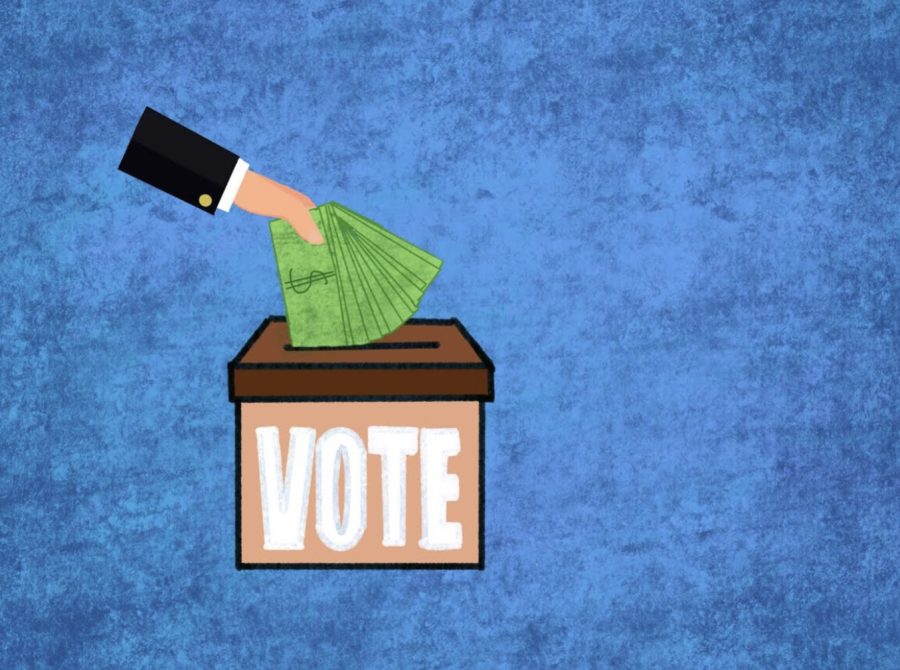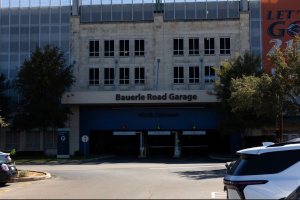Pay to win politics
February 28, 2023
In modern times, money is one of the most important factors when it comes to existing in society. Individuals need money to travel, pay for food and shelter, secure and maintain employment and enjoy almost every commodity. What many do not consider, however, is the influence and power money can buy, especially in the United States. As a result, money has snaked and weaved its way into our political process, creating a government primarily composed of the American upper class.
Running for office in the United States is extremely expensive. Candidates are expected to self-fund their campaigns or rely on donations from outside parties and causes. According to a database from OpenSecrets, the average amount of money spent on congressional campaigns has increased exponentially. In the 1998 election cycle, the combined total spent on all congressional elections was $2.9 billion, while the combined total for the 2022 election cycle was $8.9 billion — adjusted for inflation.
This supports the notion that in order to serve in public office in the United States, any congressional hopeful must have an established money pool they can use for their campaign to have a serious shot at securing said seat or position. This trend of increasing election price tags further concentrates the chances of running for office in the hands of the wealthy, while discouraging common Americans from taking on these political juggernauts.
But does the amount of money spent link to election victories? Yes, but not in blatantly obvious ways. According to an article from FiveThirtyEight, money spent by campaigns on advertising, which takes up a large percentage of funds a majority of the time, has little effect on highly contentious races. This is because of the strictly partisan nature of modern-day politics. Most elections are not decided by the effectiveness of the ads or the quality of the candidates but by the number of predetermined red or blue voters in the population.
So where does money matter? One of the areas is simple and extremely commonplace: early outspending. According to the aforementioned article, during the 2016 election cycle, there were a reported 129 congressional races where the winning candidates “spent hundreds of thousands, even millions, of dollars — and their opponents reported no spending at all.”
This occurs due to the partisan nature of politics. These races largely occurred in districts where the outcome was predictable and where the party in power has a formidable political network previously established. These networks can take the form of grassroots organizing initiatives, support from local government officials and the backing of wealthy donors who aim to keep the incumbent party in power. This support base, combined with the massive amount of early spending, leads to the opposition party writing the races off as a lost cause and de-investing early on.
Money is the ticket into American politics and the party that always wins no matter the outcome. The sheer amount of capital spent on national elections is extremely discouraging to those who come from humble backgrounds and want to make their nation a better place through government service. Money is also one of the greatest threats to oppositional grassroots campaigns, which may not have the resources available to combat the entrenched status quo. Our government should consist of individuals who want to serve in the best interests of those they represent, not those who can afford to foot the bill.








